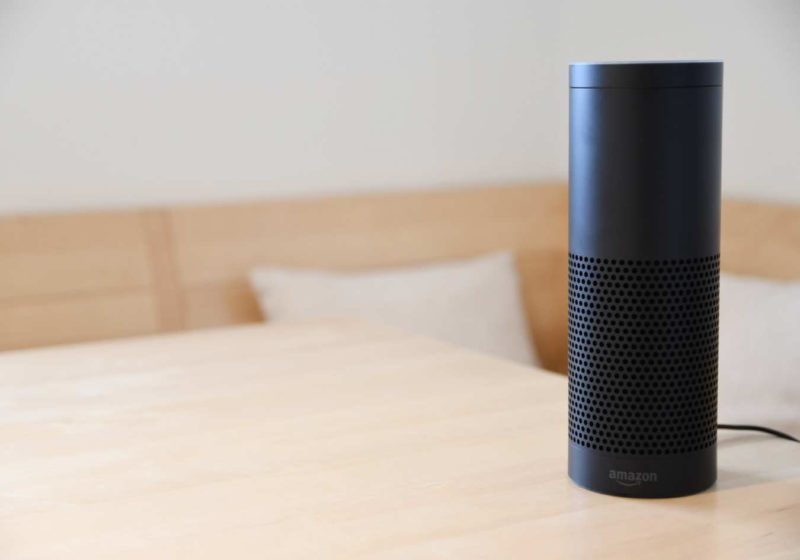Voice search: do you need to get on board?

Ever since the launch of Amazon’s Echo (“Alexa”) people have been getting excited and/or worried about voice search and its influence on online purchases. And guess what? They were right to be excited. By early 2018, 10% of UK households owned a smart speaker, with 16 per cent of owners using it to regularly make purchases.
But hold on: doesn’t that make just 1.6% of households that have used their smart speaker to make a purchase then? Well, yes. But the report’s authors are clearly expecting growth in the installed base of devices and in the propensity of people to use those devices for shopping: the same report predicted that voice shopping across the USA and UK would rise from $2bn in early 2018 to $40bn in 2022. While that looks, at first sight, wildly optimistic, there are some good reasons why it may not be over-optimistic – and they are the same reasons why you need to start thinking now about voice search strategies.
Voice search and shopping is quick, and convenient. It’s just relatively new and people are just starting to try it. Within a five year timescale, it’s not hard to imagine twice as many households buying 10 times as much ‘stuff’ (by value) using voice search as they do now (turning $2bn into $40bn). Equally, it’s not hard to imagine four times as many households buying five times as much, either, yielding the same result.
It’s especially easy to imagine such growth when you start to think of the types of item that (a) you just want to order when you think of it, and (b) that you always buy the same version, or brand, of: washing powder, ketchup, bin bags, white wine, toilet roll… Once your smart speaker knows what someone buys, and someone gets used to ordering it like you’d order a drink in a bar (“Alexa, order toilet roll”), is that hard to imagine? Again, no it isn’t.
This is a good moment to mention reviews in the context of voice-activated shopping. Nearly 85% of voice shoppers are confident in the recommendations given to them by their digital assistants. That, combined with the difficulty of comparing items by audible means, makes it easy to envisage consumers buying items – and especially ‘commodity’ items – by asking their assistant to find the “top-rated [item]”. Having a review strategy, and actual great reviews, will likely to become more important than it already is. Your products may otherwise never be seen (or heard of) by voice shoppers.
Search Strategy
The third reason is that you can almost bet your mortgage that the companies behind the most popular voice-activated devices and digital assistants – Apple, Amazon and Google sprint to mind first – are going to make sure it gets easier and easier for people to buy with very simple voice commands to their smart speaker. As a merchant itself, Amazon looks especially well-positioned in this regard.
How does voice search impact retailers in terms of search strategy? In good news, tackling voice search visibility is well-understood and is already embedded into most strategies these days.
Voice search is especially impactful in cases where only the top search result influences the buying decision – something increasingly prevalent with Google’s strategy of using feature snippets. It’s vital that you know where Google attempts to answer queries in the SERPs with featured snippets or scraped answers, and that you optimise to win the ‘featured snippet’ positions that matter to you.
The growth of voice
The growth of voice search has also coincided with consumers’ increasing propensity to make purchases from mobile devices. This puts additional pressure on your mobile performance, already an area of challenge for most.
Who’s doing it well? New Look is certainly one of the best-performing retailers in this regard. It has worked on its web platform to make the most of voice search, something that has also driven increased brand product visibility to their core audience. In fact, New Look has done exceptionally well to develop its all-round online organic proposition: it took top spot in the UK Fashion Search Visibility Leaderboard last year with 7.81% of all search positions for the industry report, jumping in front of Next in second (7.47%), BooHoo (6.44%), Debenhams (6.3%), and PrettyLittleThing (6.08%).
The result is that ‘organic’ is New Look’s top performing marketing channel and drives significant revenues. While visual search is still a much smaller part of the mix, it is investing there too and proving doubters wrong with its performance online.
If voice search and voice shopping is on your agenda, contact us to find out what QueryClick can do to help you shout louder than your competition.
Own your marketing data & simplify your tech stack.
Have you read?
I have worked in SEO for 12+ years and I’ve seen the landscape shift a dozen times over. But the rollout of generative search engines (GSEs) feels like the biggest...
As you will have likely seen, last week Google released the March 2024 Core Algorithm Update. With it, comes a host of changes aiming to improve the quality of ranking...
After a year of seemingly constant Google core updates and the increasingly widespread usage of AI, the SEO landscape is changing more quickly than ever. With this rapid pace of...



